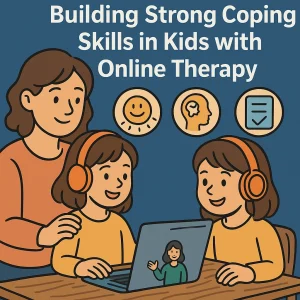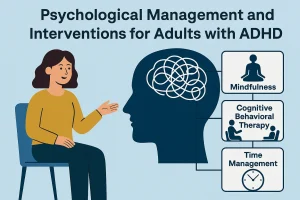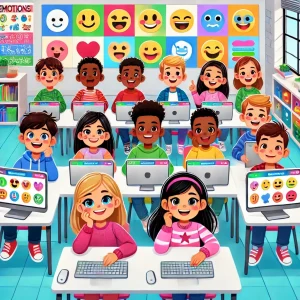Growing Impact of Online Social Emotional Learning on Schools
Last Updated: August 8, 2024
Social Emotional Learning (SEL) is an educational approach focused on developing essential life skills such as self-awareness, self-regulation, social awareness, relationship skills, and responsible decision-making. These skills are vital for success not only in school but also in work and life. SEL aims to help students understand and manage their emotions, set and achieve positive goals, show empathy for others, establish and maintain positive relationships, and make responsible decisions. By integrating Online Social Emotional into education, we prepare students to face challenges and thrive in various aspects of their lives.
Understanding Online Social Emotional Learning (SEL)
Definition and Core Components
Social Emotional Learning (SEL) is a vital framework in education that aims to equip students with crucial skills for both personal and academic success. SEL focuses on five core components:
- Self-awareness: This involves understanding one’s own emotions, strengths, and limitations. It helps students recognize their feelings and how those feelings influence their behavior.
- Self-regulation: This is about managing emotions and behaviors in different situations. It includes coping with stress, controlling impulses, and setting personal goals.
- Social awareness: This means understanding and empathizing with others, including those from diverse backgrounds and cultures. It encourages perspective-taking and recognizing social cues.
- Relationship skills: These skills help students establish and maintain healthy and rewarding relationships. It includes effective communication, listening, cooperation, and conflict resolution.
- Responsible decision-making: This involves making ethical, constructive choices about personal and social behavior. It includes considering the well-being of oneself and others.
The Unique Role of Social Emotional Learning in Online Education
Implementing SEL in an online environment presents both challenges and opportunities. Unlike traditional classrooms, virtual settings can sometimes feel isolating, with fewer natural opportunities for social interaction. However, this also provides unique opportunities for integrating SEL in innovative ways.
Challenges:
- Lack of Physical Presence: The absence of face-to-face interaction can make it harder for students to develop social skills and feel connected to their peers.
- Limited Social Cues: Online communication often lacks the non-verbal cues that are crucial for understanding emotions and intentions, making it challenging to teach and practice social awareness.
Opportunities:
- Personalized Learning: Online platforms can offer personalized SEL activities that cater to individual student needs, allowing for more targeted development of self-awareness and self-regulation.
- Innovative Engagement: Digital tools can facilitate unique ways to engage students in SEL. For example, interactive simulations, virtual role-plays, and online group projects can help build relationship skills and social awareness.
- Flexibility and Accessibility: Online Social Emotional Learning programs can be accessed from anywhere, providing flexibility and making it easier to include students who might otherwise miss out due to geographical or physical limitations.
Core Components of SEL
| Core Component | Description |
|---|---|
| Self-awareness | Understanding one’s own emotions, strengths, and limitations. This involves recognizing how feelings influence behavior and identifying personal values and abilities. |
| Self-regulation | Managing emotions and behaviors in different situations. This includes controlling impulses, managing stress, motivating oneself, and setting personal and academic goals. |
| Social awareness | Understanding and empathizing with others, including those from diverse backgrounds. It involves recognizing social cues and understanding the perspectives and feelings of others. |
| Relationship skills | Establishing and maintaining healthy and rewarding relationships. This encompasses clear communication, active listening, cooperation, conflict resolution, and seeking or offering help when needed. |
| Responsible decision-making | Making ethical, constructive choices about personal and social behavior. This includes considering the well-being of oneself and others, evaluating the consequences of various actions, and making reasoned, ethical decisions. |
Key Benefits of Online SEL in Schools
Enhancing Academic Achievement
Online Social Emotional Learning boosts academic performance by helping students manage emotions, stay focused, and build resilience. Skills like self-awareness and self-regulation improve grades and test scores. Including SEL in online education helps students succeed both academically and emotionally.
Building Emotional Resilience and Well-being
Emotional resilience is crucial in online learning, where students may feel isolated. Online Social Emotional Learning programs with activities like mindfulness and virtual support groups help students cope with stress and build emotional strength. This resilience helps students handle academic and personal challenges effectively.
Fostering Social Connections and Inclusivity
Online Social Emotional fosters social connections and inclusivity. Digital platforms for group projects and discussions help students develop communication, empathy, and teamwork skills. Inclusive SEL programs ensure all students feel valued, creating a supportive community where everyone can thrive.
Strategies for Effective Implementation of Online SEL
Creating an Inclusive Online Community
Building a supportive and inclusive virtual classroom is essential for the success of Online Social Emotional Learning . Here are some effective methods to achieve this:
- Forums and Discussion Boards: Encourage students to participate in online forums and discussion boards where they can share their thoughts, ask questions, and provide feedback. These platforms can foster a sense of community and belonging, allowing students to connect with their peers.
- Group Projects: Assign group projects that require collaboration and teamwork. These projects help students develop their social skills and learn to work effectively with others, even in a virtual environment.
- Virtual Class Meetings: Regular virtual class meetings can provide a space for students to interact with each other and the teacher. These meetings can include icebreaker activities, group discussions, and collaborative problem-solving tasks.
Incorporating SEL Activities into the Curriculum
Integrating SEL activities into the online curriculum is crucial for promoting emotional and social growth. Here are some examples:
- Role-plays and Scenario Analysis: Use role-plays and scenario analysis to help students practice empathy, conflict resolution, and decision-making. These activities can be conducted through video calls or online simulations, allowing students to explore different perspectives and responses.
- Mindfulness Exercises: Incorporate mindfulness exercises, such as guided meditation and deep breathing, into the daily routine. These practices can help students manage stress and enhance their self-awareness.
- Journaling: Encourage students to keep an online journal where they can reflect on their emotions, experiences, and progress. This activity promotes self-awareness and self-regulation, helping students understand and manage their feelings.
SEL Activities for Online Learning
| SEL Activity | Description |
|---|---|
| Role-plays and Scenario Analysis | Activities where students act out scenarios to practice empathy, conflict resolution, and decision-making. These exercises help students understand different perspectives and develop problem-solving skills. |
| Mindfulness Exercises | Guided meditation and deep breathing exercises designed to help students manage stress, improve focus, and increase self-awareness. These activities can be integrated into daily routines to promote emotional regulation and mental well-being. |
| Journaling | Encouraging students to write about their feelings, experiences, and reflections. This practice promotes self-awareness and emotional expression, helping students to process their thoughts and improve self-regulation. |
| Virtual Group Projects | Collaborative tasks where students work together on assignments and projects. These activities enhance teamwork, communication, and relationship skills, fostering a sense of community and inclusivity even in an online setting. |
Utilizing Technology for Personalized Learning
Technology offers unique opportunities to tailor SEL experiences to individual student needs. Here’s how:
- Adaptive Learning Platforms: Use adaptive learning platforms that customize SEL activities based on each student’s strengths and areas for improvement. These platforms can provide personalized feedback and resources, ensuring that every student gets the support they need.
- Interactive Tools: Leverage interactive tools such as virtual whiteboards, polls, and quizzes to engage students and make learning more dynamic. These tools can help students stay focused and actively participate in SEL activities.
- Data Analytics: Utilize data analytics to track student progress and identify areas where additional support is needed. By analyzing data from online interactions and assessments, educators can make informed decisions about how to adjust SEL programs to better meet student needs.
The Impact of Online Social Emotional Learning on Traditional Education Outcomes
Academic Performance
Online Social Emotional Learning greatly improves students’ academic performance. Research shows that students in SEL programs get better grades, higher test scores, and show improved behavior. Online Social Emotional Learning skills like self-awareness and self-regulation help students manage their time, stay focused, and handle stress, leading to better academic results.
Social and Emotional Development
SEL programs enhance students’ social and emotional skills. Activities like virtual group projects and role-plays teach empathy, communication, and teamwork. These skills help students build strong relationships and navigate social situations, both in school and in life.
Long-term Benefits for Students
The benefits of SEL last a lifetime. Students with strong SEL skills are better prepared for careers and personal challenges. They can work well with others, manage stress, and adapt to changes. SEL promotes important life skills like resilience, empathy, and self-regulation, setting students up for long-term success.
Challenges and Considerations in Online SEL
Addressing Equity and Inclusion
Creating Social Emotional Learning (SEL) programs that are fair and inclusive is essential. Equity in SEL means giving every student the support they need to succeed, regardless of their background or abilities. This includes recognizing and addressing the different needs of students, such as those from various cultural backgrounds, those with disabilities, and those facing economic challenges.
To achieve this, SEL programs must be flexible and accessible. For example, using materials that reflect diverse cultures helps all students feel valued. Providing resources in multiple languages and making sure digital platforms are accessible to students with disabilities are also important steps. Teachers should be trained to understand and respond to the unique needs of their students, creating a supportive environment for everyone.
Parental and Community Involvement
Parents and the community play a vital role in supporting SEL online. Parents are key influencers in a child’s life, and their involvement can greatly enhance SEL programs. When parents understand and support SEL, they can reinforce these skills at home, creating a nurturing environment.
To involve parents, schools can communicate regularly and provide resources that explain the importance of SEL. Organizing workshops and webinars for parents can help them learn SEL strategies to use at home. Additionally, creating online communities where parents can share experiences and support each other can strengthen SEL’s impact.
Community involvement is also crucial. Engaging local organizations and businesses in SEL initiatives can provide extra resources and support for students. Collaborating with community leaders can help create a broader support network for SEL, ensuring students have the resources they need both in and out of school.
Conclusion
Online Social Emotional Learning is very effective in improving academic performance, building emotional resilience, and creating social connections among students. Schools can successfully implement SEL by creating inclusive online communities, adding SEL activities to the curriculum, and using technology to personalize learning. These strategies lead to better academic results, stronger social and emotional skills, and long-term benefits like improved career readiness and life skills. As education continues to change, integrating SEL into both online and traditional classrooms is essential. Virtual learning brings challenges like isolation and lack of social interaction, making SEL programs even more necessary. By addressing these challenges and using technology, we can support all students in their academic and emotional growth.
Final Thoughts
Looking ahead, SEL should be a fundamental part of every student’s education. Developing social and emotional skills prepares students for success in school, work, and life. At Wellness Hub, we support this vision by offering customized SEL programs for all students. Our commitment to continuous improvement and innovation ensures that SEL remains a key part of the educational journey.
Frequently Asked Questions:
1. What is Social Emotional Learning (SEL)?
Social Emotional Learning (SEL) is an educational framework that focuses on developing students’ self-awareness, self-regulation, social awareness, relationship skills, and responsible decision-making. These skills are crucial for personal and academic success.
2. How does SEL improve academic performance?
SEL improves academic performance by helping students manage their emotions, stay focused, and develop resilience. These skills lead to better concentration, higher grades, and improved test scores.
3. Why is SEL important in online education?
SEL is important in online education because it helps address challenges like isolation and lack of social interaction. It creates a sense of community, enhances emotional resilience, and supports students in managing their feelings and behaviors in a virtual environment.
4. What are the benefits of online SEL programs?
Online SEL programs offer benefits such as improved academic outcomes, enhanced social and emotional skills, and long-term advantages like better career readiness and life skills. They also provide flexibility and accessibility, allowing students to participate from anywhere.
5. How can schools create an inclusive online SEL community?
Schools can create an inclusive online SEL community by using forums, discussion boards, and group projects to encourage student interaction. Regular virtual class meetings and activities that reflect diverse cultures and experiences also help foster inclusivity.
6. What are some examples of SEL activities for online learning?
Examples of SEL activities for online learning include role-plays, scenario analysis, mindfulness exercises, breathing exercises, and mindful journaling. These activities promote self-awareness, empathy, and emotional regulation.
7. How can technology be used to personalize SEL experiences?
Technology can personalize SEL experiences through adaptive learning platforms that customize activities based on individual student needs. Interactive tools like virtual whiteboards, polls, and quizzes, along with data analytics, help track progress and provide personalized feedback.
8. How can parents support online SEL initiatives?
Parents can support online SEL initiatives by participating in SEL activities, attending workshops and webinars, and reinforcing SEL practices at home. Creating online communities for parents to share experiences and support each other also enhances the effectiveness of SEL programs.
9. What are the long-term benefits of SEL for students?
The long-term benefits of SEL for students include improved career readiness, better life skills, enhanced emotional resilience, and stronger social connections. These skills help students succeed in various aspects of their lives.
10. How does Wellness Hub support SEL in online education?
Wellness Hub supports SEL in online education by offering tailored SEL programs that cater to diverse student needs. Our programs integrate mindfulness practices, use data-driven approaches for continuous improvement, and encourage parental and community involvement.
About Author:
Lasya Vooturi
Clinical Psychologist and Behavioral Therapist
Lasya holds a Professional Diploma in Clinical Psychology from Amity University, where she deepened her understanding of psychological principles from March 2023 to March 2024. With over a year of dedicated experience as a Behavioral Therapist, Lasya has honed her skills in applying effective therapy techniques tailored to individual needs. Fluent in Telugu, Hindi, and English, she is adept at connecting with a diverse range of clients, ensuring comprehensive communication and understanding. Lasya’s approach is grounded in empathy and scientific rigor, making her a trusted ally in navigating mental health challenges.
Book your Free Consultation Today
Parent/Caregiver Info:
Client’s Details:
* Error Message








